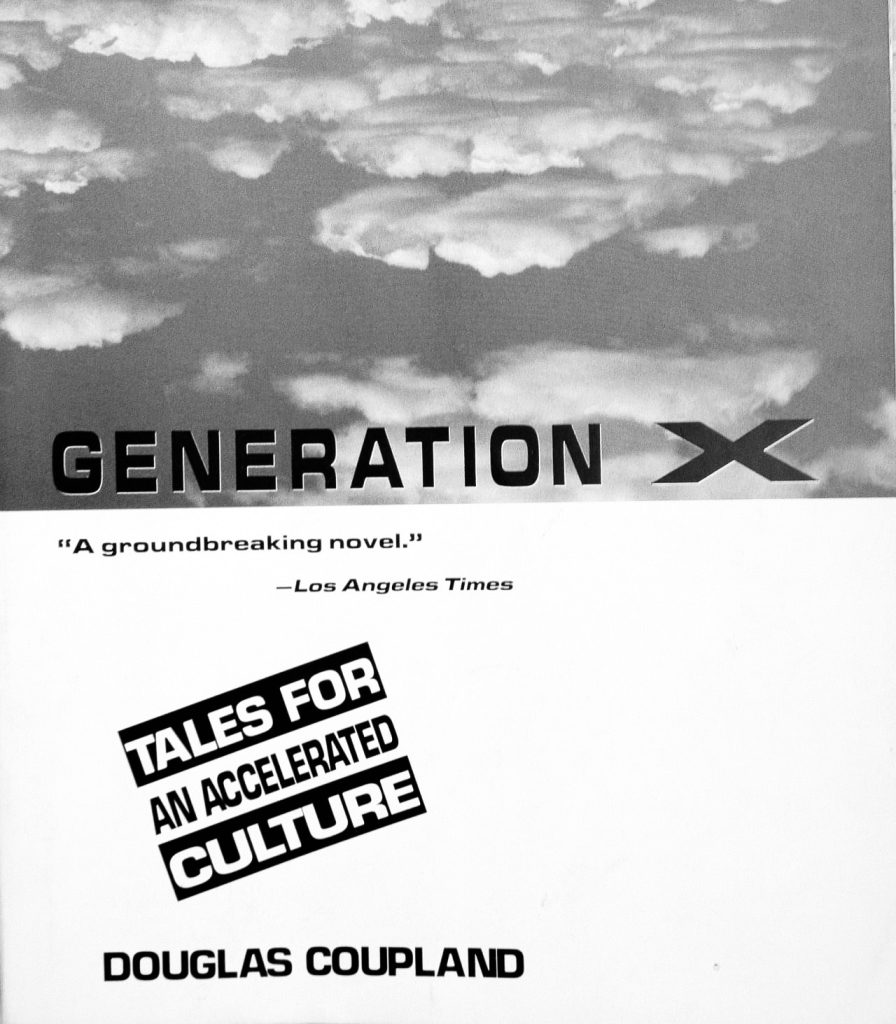British punk rock guitarist William Broad was twenty-one years old in 1976 when he took on the roles of frontman and lead singer for his band, Generation X. The band drew inspiration for their name from the book “Generation X” by British journalists Jane Deverson and Charles Hamblett, which delved into the experiences of teenagers involved in the Mod subculture. Published in 1964, the book emerged during a time when the future punk icon known as Billy Idol, was still a few years away from being a teenager but old enough to begin identifying with and emulating the older kids he grew up with in the 1960s.

Canadian author Douglas Coupland was almost thirty years old when he entered the literary scene with his book “Generation X” in 1991. Coupland’s choice of title was in turn influenced by Billy Idol’s fledgling band, as he sought to capture the perspectives and frustrations of individuals born between between 1954 and 1964, a group he believed was wrongly classified as Baby Boomers. Coupland wanted to express the thoughts and challenges faced by his cohort. He felt they were a generation that was often overlooked and misunderstood. When he was interviewed by the press the year his book came out, he made it very clear. “I just want to show society what people born after 1960 think about things,” he told the Boston Globe. “We’re sick of stupid labels. We’re sick of being marginalized in lousy jobs, and we’re tired of hearing about ourselves from others.” Famous first words.

In the 1990s and well into the 21st century, Generation X was typically considered by the mainstream in English speaking countries to include individuals born between the early 1960s and the early 1980s. Flash forward to the year 2024, as I write this, and the general consensus is that Generation X spans from around 1965 to 1980. Those dates kick Billy Idol and Douglas Coupland out of the club in which they both claimed to belong and demotes them to Boomers.
~ 2 ~
There are typically five generational cohorts that are commonly recognized in the study of demographics and consumer behavior. Generational cohorts are groups of individuals who were born around the same time that share similar characteristics. The Silent Generation (1928-1945), Baby Boomers (1946-1964), Generation X, (1965-1980), Millennials (1981-1996), and Generation Z (1997-2012), are labels for generations that have their own unique characteristics and experiences based on the historical events and societal trends that shaped their formative years.
I was born in 1964, which places me in the last year of the Baby Boom era. However, I don’t identify with Boomers, and neither does my mother’s sister, born in 1958. In those days, my aunt might have been called a Sputnik baby, because she was born the year after the first artificial satellite to orbit the Earth was launched by the Soviet Union. When I entered the world six years later, in the same month the US declared war with Vietnam, the country was in the midst of an unprecedented exceleration of knowledge due to all the technological advances from the space race, especially in computers.
My formative years really began in the 1970s, at the tail end of Vietnam during Watergate and the oil crisis, which places me in a generational limbo filled with “cuspers”—people who fall on the border or overlap between two generational cohorts. My mother is also a cusper, born in the last Silent Generation year, and she doesn’t identify with that cohort either; instead embracing the hippie counterculture shortly after I was born, which gave me a very different perspective on mainstream cultural narratives.
As a member of a generational cohort in America born between 1956 to 1970, individuals like myself (approximately 57.5 million of us) have witnessed remarkable cultural shifts and historical events, extraordinary progress in the Civil Rights Movement, and the evolution of rock ‘n’ roll music. These experiences have shaped my perspective in unique ways, offering a different lens through which I view the world compared to preceding generations.
~ 3 ~